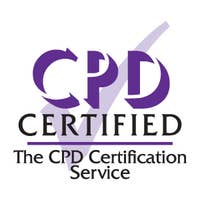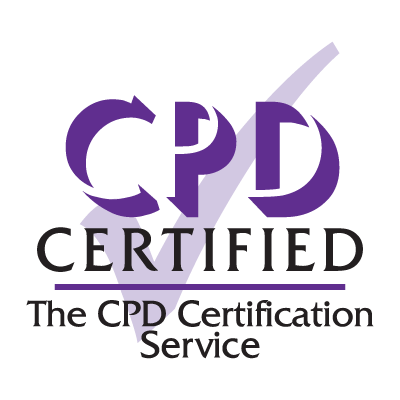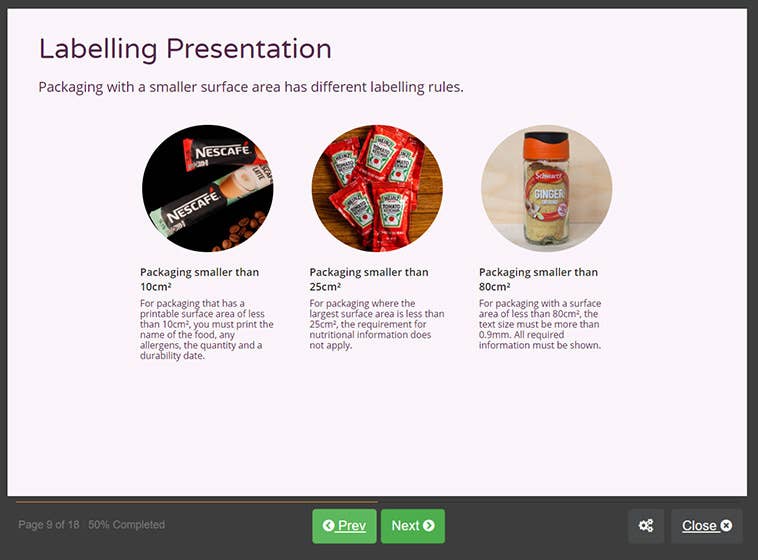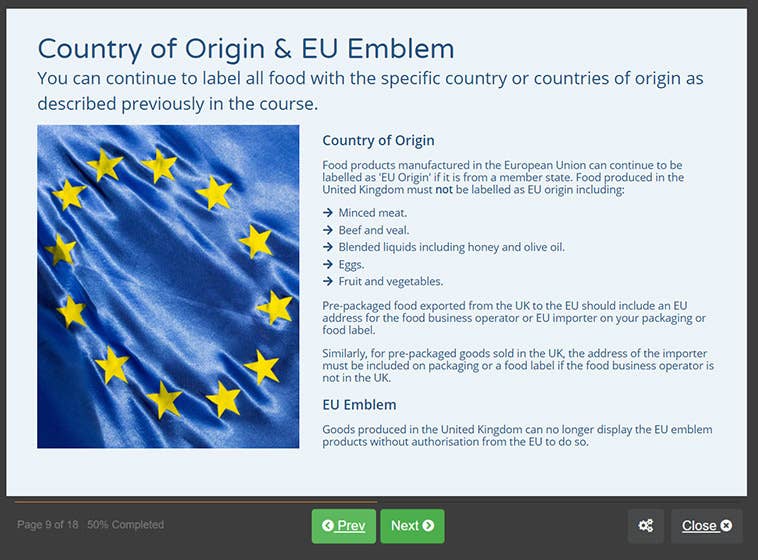Food Labelling Regulations Training Course
Quantity: 1

Duration 2-3 hours
Last audited 13th March 2023



100% online training
Start when you like
Learn on any device (desktop, mobile or tablet)
Instant assessment and result
1 learner per course
Train teams of all sizes
Bulk discounts starting at 10% off 10 courses
Learn on any device (desktop, mobile or tablet)
Includes a 10% discount for 10+ courses
This Food Labelling training course has been designed by food industry experts to help food businesses understand how to label their food products legally and correctly.
The overall aim of the Food Labelling Regulations is to ensure that customers can make informed choices in relation to the food they consume, as well as to prevent any practices that may mislead the consumer. This course explains each of the food labelling requirements under the Food Information Regulations 2014 and FIC Regulations. This course also provides information on what can and cannot be said in relation to nutritional claims and health claims, explains the importance of allergen labelling and outlines the reserved descriptions and composition standards for specific food products.
100% online training
Access anywhere
Same day digital certificate
Printed certificate posted next working day
Full audio voiceover
Unlimited assessment attempts
Developed by food industry experts
Up to date with the EU Food Information for Consumers (FIC) Regulation and current allergen legislation in the UK, Natasha's Law and PPDS labelling requirements
Accredited by CPD and endorsed by the Institute of Hospitality
By the end of this course, learners will:

Accredited by CPD
All of our courses are accredited by the CPD Certification Service as conforming to universally accepted Continuing Professional Development (CPD) guidelines.

Endorsed by the Institute of Hospitality
Additionally, this course is endorsed by the Institute of Hospitality as providing independently-evaluated, quality content that teaches good practice standards.
Recommended renewal:
3 years
What does this mean? This certificate does not have an expiry date, however, based on industry best practice guidelines there is a recommended renewal period.
Our in-house Learning Designers develop all of our courses to give you and your learners the most engaging training possible.
.jpg?cb=133560923153404502)



.jpg?cb=133560923153404502)



Informed choices, labelling requirements for packaged foods, labelling requirements for loose products, vertical regulations, UK food labelling regulations, and labelling presentation.
Name of the food, allergens, durability date, lot code marking, list of ingredients, QUID, rework, net quantity, 3 Packers' Rules, special storage conditions, name and address of the food business operator, country of origin, instructions for use, and wine labelling.
Nutritional information, traffic light nutritional labelling, nutritional tolerances, claims, alcoholic strength, traceability, product recalls, and distance selling regulations.
Basmati rice, cocoa and chocolate, milk, condensed, dried and instant formula, fat spreads, sugar and sweeteners, honey, olive oil, jam, meat products, fish & molluscs, fruit juice, bottled water, soluble coffee, bread and flour, and food additives and colours.
Barcodes, marketing terms, voluntary declarations, symbols, organic, vegan symbols, kosher & Halal, and clean labelling.
UK protected geographical food names scheme, country of origin & EU emblem, minced meat, beef and veal, blended liquids, eggs, fruits and vegetables, and health and identification mark.
The online assessment is taken on completion of the training material. You will be asked 10 multiple choice questions with a pass mark of 80%. The answers are marked automatically so you will instantly know whether you have passed. If you don't pass don't worry! You can take the test as many times as you need with no extra charge.
This Food Labelling Regulations course is suitable for all food businesses who package food for sale directly to the consumer. This includes large manufacturers, such as those who operate from factories, as well as smaller businesses, such as bakeries, that pre-package their own food to sell.